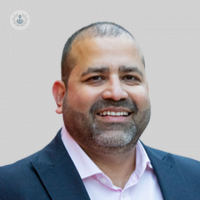Unpacking emotional unavailability in the LGBTQ+ community
Escrito por:Emotional unavailability—difficulty connecting, opening up, or committing emotionally—affects people in various ways and can be especially complex in the LGBTQ+ community. For many LGBTQ+ individuals, experiences of societal discrimination, fear of rejection, and internalised stigma contribute to emotional barriers. The journey of self-discovery and acceptance is often fraught with challenges, and these obstacles can create emotional defenses, making it hard to form close, trusting connections.

Growing up in a heteronormative society, LGBTQ+ individuals often face a range of emotions from isolation to shame. From a young age, many people in the community feel pressure to conceal or suppress parts of their identity, leading to a sense of separation not only from society but also from their inner selves.
This split can sometimes manifest as emotional unavailability in adult relationships. Trusting others fully can be daunting after experiencing rejection or marginalisation, leading individuals to shield themselves to avoid vulnerability. This self-protective behaviour may be particularly prevalent among those with histories of trauma or family rejection, where emotional detachment feels safer than facing the potential pain of vulnerability.
Social expectations around gender roles and stereotypes can also complicate emotional availability in LGBTQ+ relationships. For instance, stereotypes that paint masculinity as stoic or that expect LGBTQ+ relationships to conform to certain dynamics may discourage emotional openness. These social pressures can hinder people from expressing needs, emotions, and desires freely.
Additionally, mental health conditions, such as depression, anxiety, or PTSD—conditions that disproportionately affect LGBTQ+ individuals due to discrimination—can intensify emotional unavailability, making it even harder to build authentic connections.
Addressing emotional unavailability within the LGBTQ+ community often involves fostering safe spaces where individuals feel empowered to open up and explore their feelings. Therapy, support groups, and community resources can be instrumental in providing coping tools and building self-acceptance.
Overcoming emotional unavailability is a gradual process, but with support, individuals can learn to reconnect with their feelings and form healthier, fulfilling relationships. Embracing emotional openness and vulnerability, while difficult, can ultimately lead to a more profound sense of belonging, healing, and personal growth within the LGBTQ+ community.


